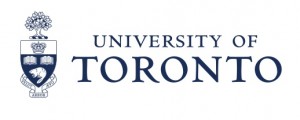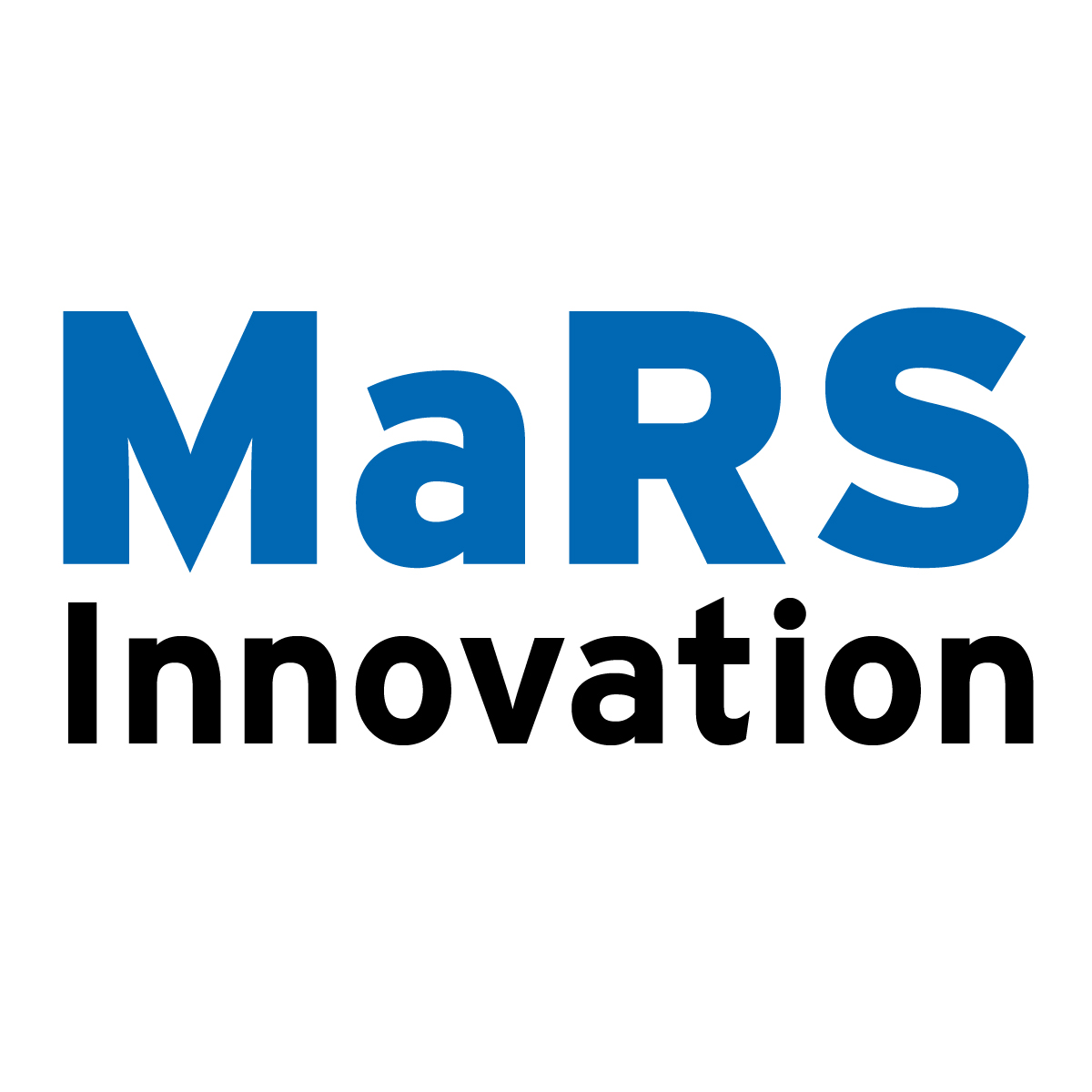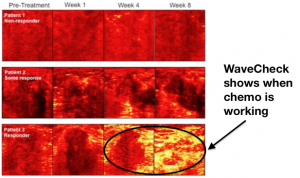MI’s Joel Liederman on CanadaAM to talk product development
Joel Liederman, vice-president of Physical Sciences, appeared on CanadaAM April 5, 2016 to talk about how to make a product. The interview is part of CanadaAM's "What's Next" segment on…
Joel Liederman, vice-president of Physical Sciences, appeared on CanadaAM April 5, 2016 to talk about how to make a product. The interview is part of CanadaAM's "What's Next" segment on…
Applications for next MSc PoP granting round being accepted until February 25, 2016 TORONTO (January 26, 2016) — Nine Ontario-based medical research projects built on great science with potential for…
2015 created a flurry of activity for MaRS Innovation and our portfolio. As the holidays begin, here are our picks for the top 10 news stories from MI's portfolio in…
 “In a project spearheaded by PhD candidate Reza Nosrati, U of T researchers are trying to learn more about the way sperm cells move — something that could benefit those using in vitro fertilization (IVF),” writes Daniel Otis in “Sperm show U of T researchers a new trick: slithering” published in the Toronto Star on November 13, 2015.
“In a project spearheaded by PhD candidate Reza Nosrati, U of T researchers are trying to learn more about the way sperm cells move — something that could benefit those using in vitro fertilization (IVF),” writes Daniel Otis in “Sperm show U of T researchers a new trick: slithering” published in the Toronto Star on November 13, 2015.
MaRS Innovation is working with Professor David Sinton, Nosrati and the university’s Innovations and Partnerships Office to commercialize the technology for the human sperm selection markets, including intellectual property strategy and patent filing, and securing industry partners and collaborators.
Baycrest Heath Sciences’ “My Virtual Dream,” an innovative and interactive live performance experience at the intersection of science, art and music, is currently touring the installation with appearances in Amsterdam in May and more scheduled for Irvine, CA in October.
MaRS Innovation is working with the Baycrest team to commercialize the technology behind the demonstration, known as the virtual brain.
My Virtual Dream was featured in TechVibes on July 8 and in a PLOS blog published on August 14, 2015.
“The Virtual Dream tour is a ‘living lab’ that engages the public, fuels science, creates art and educates while it entertains,” says Richard Tavener, executive producer of the Virtual Dream tour.
The exhibition and research project was originally mounted in partnership with the University of Toronto, Nuit Blanche 2013, and InteraXon and also made a January 2015 appearance at the Ontario Science Centre.
Participants wear the Muse, a brain-computer interface headset provided by InteraXon, and use focus and mental relaxation states to complete a science game and create a stunning array of visuals and music.
The brain data collected at Nuit Blanche has yielded insights about how the brain learns and a science paper about this massive, one-night neuroscience experiment. The paper, which appeared in the July issue of PLOS One, found that:

Fanny Sie, MaRS Innovation’s head of imaging technologies, was quoted in Tanya Powley‘s article, “Printing whole organs remains a long way off,” for the U.K.’s Financial Times on June 11, 2015, regarding the technology’s potential to transform existing healthcare practices.
MI does wish to note that the article inaccurately attributes the PrintAlive device’s development to MaRS Innovation; MI is working with the University of Toronto inventing team, led by Dr. Axel Gunther, to commercialize the device.
Here’s a short excerpt:
Bioprinting could save pharmaceutical companies a lot of money, according to Fanny Sie of MaRS Innovation, a Toronto-based company. The company has developed the PrintAlive Bioprinter, which can print skin that could be used to treat people with large scale burns. The printed tissues could be used by pharmaceutical companies to test the toxicity of new drugs, and help them decide if it is worth starting costly animal and then human clinical trials.

Biotechnology Focus, a compendium of the Canadian life sciences industry, has published a guest column by Dr. Raphael Hofstein, MaRS Innovation’s president & CEO, and Elizabeth Monier-Williams, director of marketing and communications.
The article explores the way research focused on discovery and commercialization are often viewed or positioned as competitors within the funding ecosystem and the need to align their goals:
The time of Canada’s French and English solitudes may be past, as Governor General Michaëlle Jean notably stated when she took office in 2005, but the solitudes of thought concerning how Canada supports basic and commercial research persist.
This thinking is most easily spotted after the government announces a federal budget, triggering a flurry of opinion pieces debating the breakdown for the $2.7 billion Canada spends on research.
Most recently, Jim Balsillie, co-founder of Research in Motion (now BlackBerry Ltd.), wrote for the Globe & Mail about the Canadian need to understand that “geopolitics is at the heart of commercializing ideas,” and create better policies to protect Canadian ideas, including “better
incentives for researchers to spur commercialization,” such as during an academic’s consideration for tenure. Yet, like any business endeavor whose success depends on people, there’s more involved in changing Canada’s approach to commercialization than just policy.The people must want to change, too.
 TORONTO, ON (April 23, 2014) — MaRS Innovation congratulates the Federal Government’s deepened commitment to support Canadian research and innovation, particularly in the healthcare sector. In particular, the $42 million over five years dedicated to support the Canadian Centre for Aging and Brain Health Innovation at Baycrest Health Sciences, which includes $32 million in support from the Federal Economic Development Agency for Southern Ontario (FedDev).
TORONTO, ON (April 23, 2014) — MaRS Innovation congratulates the Federal Government’s deepened commitment to support Canadian research and innovation, particularly in the healthcare sector. In particular, the $42 million over five years dedicated to support the Canadian Centre for Aging and Brain Health Innovation at Baycrest Health Sciences, which includes $32 million in support from the Federal Economic Development Agency for Southern Ontario (FedDev).
Baycrest is a founding member institution of MaRS Innovation.
“As a Baycrest partner and long-time champions of the commercialization potential of its world-class science in brain and geriatric health care, MaRS Innovation welcomes this news,” says Dr. Raphael (Rafi) Hofstein, president and CEO. “We look forward to advancing existing neuroscience projects in partnership with Baycrest, such as The Virtual Brain, and to collaborating on new start-up companies and licenses related to dementia and other neurodegenerative diseases.”
Other promising budget allocations for the innovation sector include:
Co-development agreement, brokered by MaRS Innovation, to advance ultrasound chemotherapy monitoring technology as clinical tool
 TORONTO (March 12, 2015) — Sunnybrook Health Sciences Centre and MaRS Innovation today announced a co-development agreement for WaveCheck, an ultrasound technology that transforms conventional equipment so that physicians can monitor a breast cancer tumour’s response to chemotherapy.
TORONTO (March 12, 2015) — Sunnybrook Health Sciences Centre and MaRS Innovation today announced a co-development agreement for WaveCheck, an ultrasound technology that transforms conventional equipment so that physicians can monitor a breast cancer tumour’s response to chemotherapy.
This announcement was covered in Biotechnology Focus, Aunt Minnie.com (radiology blog), dotmed.com, Bio-Medicine.org, Bloomberg Business and Research Views.
The partnership with GE Healthcare, brokered by MaRS Innovation, seeks to develop WaveCheck as a clinical tool that gives clinicians rapid, improved transparency to determine if breast cancer tumors are responding to chemotherapy.
WaveCheck is a clinical technique invented, refined and tested by Dr. Gregory Czarnota, chief of Radiation Oncology at Sunnybrook’s Odette Cancer Centre, and Michael C. Kolios, professor of Physics and associate dean, Research and Graduate Studies, in Ryerson University’s Faculty of Science. Their technology uses ultrasound to visually demonstrate whether chemotherapy is destroying a breast cancer tumour at the beginning of chemotherapy treatment in as little as one week. If applied to the clinic, this knowledge has the power to transform patient experience, since existing breast cancer patients typically wait until the end of treatment, anywhere from four to six months, to know if their tumor has responded.

In early clinical testing, WaveCheck’s inexpensive, non-invasive, image-guided technology shows promise as an accurate, efficient way to monitor tumour response, opening the door to tailored treatment.
The agreement leverages GE Healthcare’s extensive ultrasound technology and market expertise in bringing new ultrasound innovations to global hospitals and clinics with Sunnybrook’s leadership in oncology research and cancer care through the Odette Cancer Centre.
![]() TORONTO, Jan. 12, 2015 — MaRS Innovation, the commercialization agent for Ontario’s 15 leading academic institutions, today announced that it has formed a research collaboration with Johnson & Johnson Innovation, LLC and its Canadian affiliate, Janssen Inc., to advance three technologies focused on cardiac, diabetes and depression, respectively.
TORONTO, Jan. 12, 2015 — MaRS Innovation, the commercialization agent for Ontario’s 15 leading academic institutions, today announced that it has formed a research collaboration with Johnson & Johnson Innovation, LLC and its Canadian affiliate, Janssen Inc., to advance three technologies focused on cardiac, diabetes and depression, respectively.
This announcement was covered in Lab Product News.
“These three projects reflect the quality of innovation present in Toronto’s research community for our industry partners, and Toronto’s progress in addressing healthcare issues of international concern,” said Dr. Raphael Hofstein, president and CEO of MaRS Innovation. “Johnson & Johnson Innovation is a long-term strategic partner of MaRS Innovation and of our members; our collaboration reflects the benefits to accessing our members’ deal flow through MaRS Innovation. Through these deals and other scientific exchanges, we see increased interest in Toronto’s innovation and entrepreneurship community.”
The projects’ principal investigators are researchers from the University Health Network (UHN), the Centre for Addiction and Mental Health (CAMH) and the University of Toronto. This announcement follows Johnson & Johnson Innovation’s December 2013 commitment to collaborate on early-stage drug development projects.